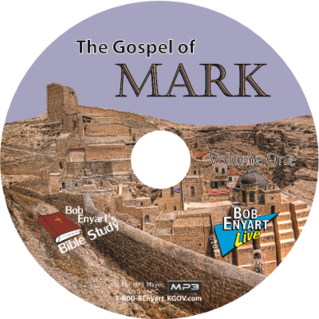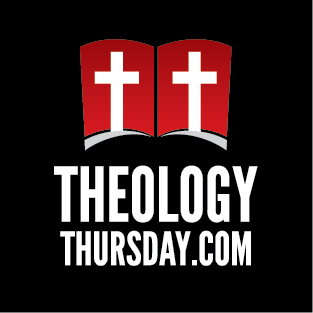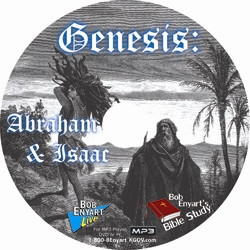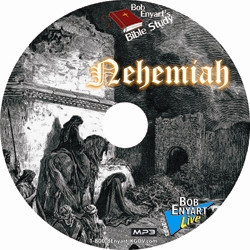ThThurs: Mark Pt 5
 Gospel of Mark: We Christians might assume that the Lord's favorite title for Himself, being God the Son, would be, the Son of God. Indeed, the Gospel of Mark begins by identifying Jesus in that way. However, five times more frequently, Mark uses Jesus own favorite title for Himself, the Son of Man. Throughout all of eternity past, He had always been the Son of God. However, to become the Son of Man, He would need to lower Himself. Indeed, the Lord lowered Himself in so many ways, as He would need to do even to have the evangelist Mark write this amazing account of His life, death and resurrection.
Gospel of Mark: We Christians might assume that the Lord's favorite title for Himself, being God the Son, would be, the Son of God. Indeed, the Gospel of Mark begins by identifying Jesus in that way. However, five times more frequently, Mark uses Jesus own favorite title for Himself, the Son of Man. Throughout all of eternity past, He had always been the Son of God. However, to become the Son of Man, He would need to lower Himself. Indeed, the Lord lowered Himself in so many ways, as He would need to do even to have the evangelist Mark write this amazing account of His life, death and resurrection.
The Gospel of Mark Bible study vol. 1 is available on MP3-CD, MP3 Download or in video in a 9-DVD Set.

 Genesis - Abraham & Isaac: The theology of the New Testament builds upon concepts that God presented through the life of Abraham. This exciting album, Genesis: Abraham & Isaac, explores those truths. Only by understanding the life of Abraham can a believer understand the Bible, since God pivots the plot of the Bible upon events in Abrahams life. And the life of Isaac reveals how each of us must choose and serve God. For over twenty-five years Bob Enyart has studied God's Word praying for the wisdom to share the truth of Scripture to a lost world. Now you can benefit from this very exciting Bible study.
Genesis - Abraham & Isaac: The theology of the New Testament builds upon concepts that God presented through the life of Abraham. This exciting album, Genesis: Abraham & Isaac, explores those truths. Only by understanding the life of Abraham can a believer understand the Bible, since God pivots the plot of the Bible upon events in Abrahams life. And the life of Isaac reveals how each of us must choose and serve God. For over twenty-five years Bob Enyart has studied God's Word praying for the wisdom to share the truth of Scripture to a lost world. Now you can benefit from this very exciting Bible study.  Hebrews: Many have been taught that the writer of this epistle addressed it to the Body of Christ, which of course, consists of some Jewish believers but mostly of Gentile Christians. In this verse-by-verse study, Bob Enyart takes the controversial stand that this is actually the epistle to the Hebrews. A crucial issue for those who seek to "rightly divide the word of truth", as the Bible commands us to do, is to understand what has changed regarding the believer and Israel's law, and what has not. So importantly, Hebrews teaches us: "For the priesthood being changed, of necessity there is also a change of the law." Pastor Bob works through the book, chapter by chapter, asking God for the wisdom needed to rightly divide and to know what it is that the Lord has for us today!
Hebrews: Many have been taught that the writer of this epistle addressed it to the Body of Christ, which of course, consists of some Jewish believers but mostly of Gentile Christians. In this verse-by-verse study, Bob Enyart takes the controversial stand that this is actually the epistle to the Hebrews. A crucial issue for those who seek to "rightly divide the word of truth", as the Bible commands us to do, is to understand what has changed regarding the believer and Israel's law, and what has not. So importantly, Hebrews teaches us: "For the priesthood being changed, of necessity there is also a change of the law." Pastor Bob works through the book, chapter by chapter, asking God for the wisdom needed to rightly divide and to know what it is that the Lord has for us today! Nehemiah: The Hebrew Scriptures, which are the original Old Testament, present Ezra and Nehemiah as only one book: Ezra. Why do the Christian editions of the Old Testament separate that book into Ezra and Nehemiah (which are otherwise identical to the Jewish text)? What did Israel rebuild first, the Temple or the wall of the city of Jerusalem? What was built first, God's house, or the houses of Jerusalem's citizens? And how does the story of Esther relate to the story of Nehemiah? What historical value does Nehemiah's story possess, and what spiritual lesson does this governor teach us? God had instructed the Jews to live separately from the Gentiles, and especially not to marry them. But what does that Mosaic Law of separation mean to the Body of Christ today, which is made up mostly of Gentiles?
Nehemiah: The Hebrew Scriptures, which are the original Old Testament, present Ezra and Nehemiah as only one book: Ezra. Why do the Christian editions of the Old Testament separate that book into Ezra and Nehemiah (which are otherwise identical to the Jewish text)? What did Israel rebuild first, the Temple or the wall of the city of Jerusalem? What was built first, God's house, or the houses of Jerusalem's citizens? And how does the story of Esther relate to the story of Nehemiah? What historical value does Nehemiah's story possess, and what spiritual lesson does this governor teach us? God had instructed the Jews to live separately from the Gentiles, and especially not to marry them. But what does that Mosaic Law of separation mean to the Body of Christ today, which is made up mostly of Gentiles?